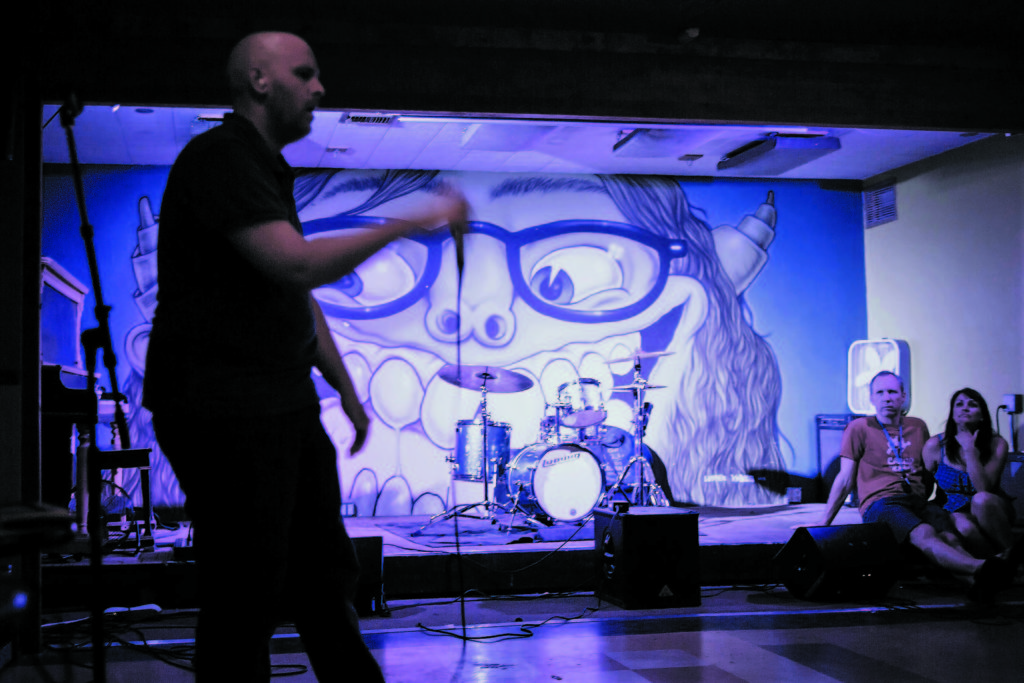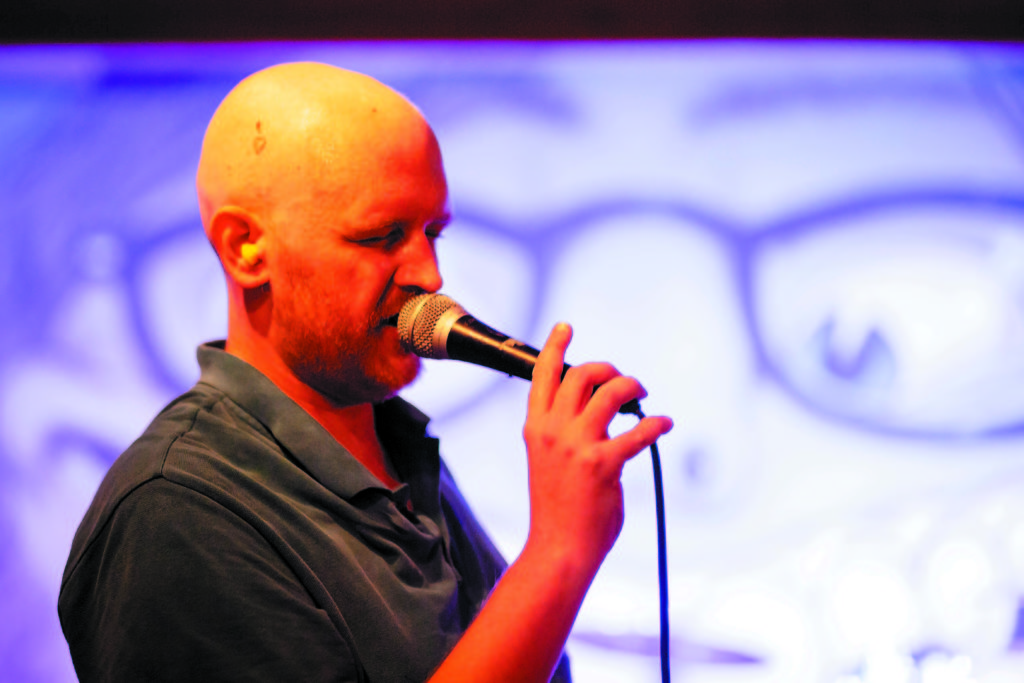
By Chase Kemp
Pop music is made for the masses, but it is perfected by the peculiar. Valley songwriter Todd Hoover has spent years finding the right balance of these opposing tendencies, and his latest release as The Invisible Teal is a years-in-the-making collection of accessible esoterica and awkward honesty. The album is available at The Trunk Space in Phoenix, where Hoover already has premiered the newest of his virtuosic and verbose art pop.
Debt & Quandaries can be understood within the monolithic album rock of the Beach Boys’ Pet Sounds or the Flaming Lips’ The Soft Bulletin, yet is cut with the unflinching vulnerability of Xiu Xiu’s Dear God I Hate Myself.

Hoover makes a feat of managing dizzying arrangements and a cavalcade of genre touchstones, at times housing booming punk beats, ragtime piano and indie rock guitar cacophony. These songs, some of which are nearly a decade in the making, were painstakingly compiled with co-producer Jalipaz Nelson in his Mesa studio.
“If I’m not moved by it, I can’t expect anyone else to be moved by it,” Hoover says.
While attending Arizona State in the early 2000s, Hoover tried to strike out on the local music scene, soon gathering friends to accompany him under The Invisible Teal moniker. But being a member of the flock among a largely secular Phoenix music scene alienated him, the perceived normativity of his Christian faith setting him apart from artists who craved outsider cachet. He effectively dropped out of the scene for years and attended seminary.
Much has changed in that time. Hoover has a career and a fiancé, and no longer identifies as Christian. Though he is grateful of the support he had, he doesn’t look back too fondly on the meek and subtle music he made years ago as he searched for a welcoming space. “Life is too short to waste on Christian slowcore,” he jokes.
Instead, the new Invisible Teal shoots for the moon. After graduating, Hoover eventually became a school music instructor. That consistent practice has lent his compositional abilities and ambitions a much wider berth: Debt & Quandaries’ sweeping dynamic changes and dense vocal harmonies would be chaotic in less-experienced hands.

There is also a newly developed harshness that permeates the record, one that is pointed entirely at himself. The harrowing “Heaven is a Library” is a full-on assault on his old self, his ego and destructive desires. “Being unflinchingly honest is just how I am, and I don’t really know how to be any other way,” he says.
After recording those vocals, Hoover began to emerge on the other side of that despair. “I felt like this demon had been exorcised from me,” he says.
In contrast, the album’s tender, string-laden finale “We Vessels” acts as a simple denouement. “I say my prayers in silence,” Hoover sings over twinkling piano and shuffling drums. “I think nothing but good for people in need.” Unlike the rest of the record, it sounds much like that meek Christian slowcore, an ode to Hoover’s old faith.
“Many people want to end albums with a grandiose finale,” Hoover says. “I wanted to end it with something humble.”
Nothing better defines the character of Todd Hoover’s music: lying at the end of this wild-eyed, scatterbrained and meticulous album, peering across years of silent struggle and doubt, is a soft totem of humility.
Secular or not, it is worship music for whatever hard-won good still remains.


Wow, what a great review by Chas Kemp!